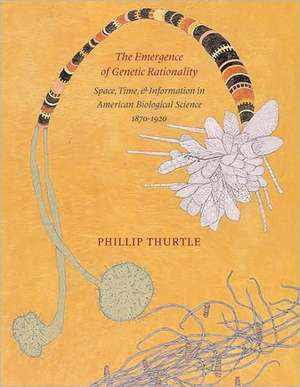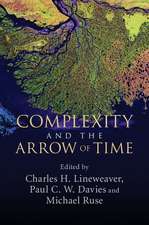The Emergence of Genetic Rationality: Space, Time, and Information in American Biological Science, 1870-1920: In Vivo: The Cultural Mediations of Biomedical Science
Autor Phillip Thurtleen Limba Engleză Paperback – 30 noi 2007 – vârsta de la 22 ani
Preț: 267.09 lei
Nou
Puncte Express: 401
Preț estimativ în valută:
51.14€ • 53.25$ • 42.43£
51.14€ • 53.25$ • 42.43£
Carte tipărită la comandă
Livrare economică 13-27 februarie
Preluare comenzi: 021 569.72.76
Specificații
ISBN-13: 9780295987507
ISBN-10: 0295987502
Pagini: 381
Ilustrații: 16 illustrations
Dimensiuni: 181 x 229 x 24 mm
Greutate: 0.62 kg
Editura: University of Washington Press
Seria In Vivo: The Cultural Mediations of Biomedical Science
Locul publicării:United States
ISBN-10: 0295987502
Pagini: 381
Ilustrații: 16 illustrations
Dimensiuni: 181 x 229 x 24 mm
Greutate: 0.62 kg
Editura: University of Washington Press
Seria In Vivo: The Cultural Mediations of Biomedical Science
Locul publicării:United States
Recenzii
A wonderful multi-disciplinary romp through a very crucial transition period in the history of American biology. Barbara Kimmelman, Philadelphia University
Notă biografică
Phillip Thurtle is assistant professor in the Comparative History of Ideas Program, University of Washington.
Descriere
Explains the technological, economic, cultural and even narrative transformations necessary to make genetic thinking possible



















